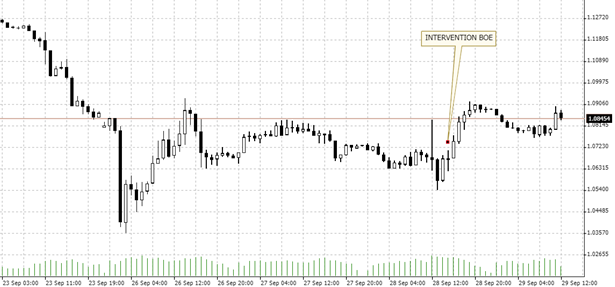

30.09.2022 – Potential game changer for aluminum: the London Metal Exchange is considering a boycott of Russian imports. This is apparently in response to the aggravation of the situation in Ukraine and perhaps also to pressure from the new British government at 10 Downing Street. The price of aluminum has thus received a strong boost.
Tension in the metal market: the Bloomberg news agency reported that the London Metal Exchange is discussing a ban on new Russian goods. The LME was preparing a directive clarifying under which circumstances metal from Rossia could no longer be imported. The exchange itself said, “The LME continues to take the required action to ensure market stability in response to sanctions.” The price of aluminum then jumped 8.5 percent – the biggest daily gain ever recorded. Nickel also rose by 5 percent and zinc by just over 4 percent. No wonder, the London Stock Exchange is after all the world’s largest marketplace for futures and forwards. In any case, the market is shaken up, as you can see in the hourly chart.

Source: Bernstein Bank GmbH
A look back shows how things could develop further for aluminum: In February and March, prices for the light metal rose sharply to new record levels. This is because around six months ago, fears circulated for the first time that Russian metal would be excluded from the market as a result of the Ukraine invasion. In addition, demand picked up in the wake of the Corona opening.
Change of position of the LME
Now the Ukraine war is again the dominant topic. Admittedly, no final decision has yet been made in London. But there are signs of a significant change in position. Up to now, the trading center has always pointed out that it does not want to become active beyond the scope of the Western sanctions. This means that business with Rusal or Norilsk Nickel remains largely untouched. Incidentally, Rusal had announced almost two weeks ago that it would supply LME warehouses in Asia directly, probably in an attempt to circumvent Western sanctions.
Tug of war over the aluminum price
Does this signal a trend reversal in the market price? The answer to this question is difficult. After all, the market has recently also been dragged down by concerns that a recession is choking off demand. The industry service “Metal Miner” just pointed out a few contradictory facts. Supply is shrinking because of smelter closures in Europe and China, triggered by rising energy prices. In addition, demand is falling, especially in the People’s Republic of China and particularly in the construction sector. However, there is already too low a supply of beverage cans in the USA, so that delivery times and soon also prices are likely to increase – which speaks in favor of increased demand for aluminum.
Our conclusion: the determining factors for aluminum are a possible recession, problems in manufacturing due to high energy costs and sanctions in the wake of the Ukraine war. So keep an eye on the real-time news in this mixed situation – Bernstein Bank wishes successful trades and investments!
The content of this publication is for general information purposes only. In this context, it is neither an individual investment recommendation or advice nor an offer to purchase or sell securities or other financial products. The content in question and all the information contained therein do not in any way replace individual investor- or investment-oriented advice. No reliable forecast or indication for the future is possible with respect to any presentation or information on the present or past performance of the relevant underlying assets. All information and data presented in this publication are based on reliable sources. However, Bernstein Bank does not guarantee that the information and data contained in this publication is up-to-date, correct and complete. Securities traded on the financial markets are subject to price fluctuations. A contract for difference (CFD) is also a financial instrument with leverage effect. Against this backdrop, CFD trading involves a high risk up to the point of total loss and may not be suitable for all investors. Therefore, make sure that you have fully understood all the correlating risks. If necessary, ask for independent advice. CFDs are complex instruments and are associated with the high risk of losing money quickly because of the leverage effect. 68% of retail investor accounts lose money trading CFD with this provider. You should consider whether you understand how CFD work and whether you can afford to take the high risk of losing your money.7
